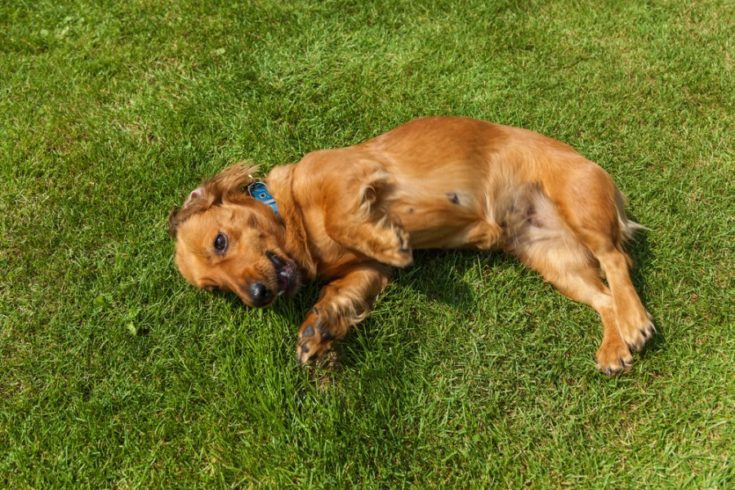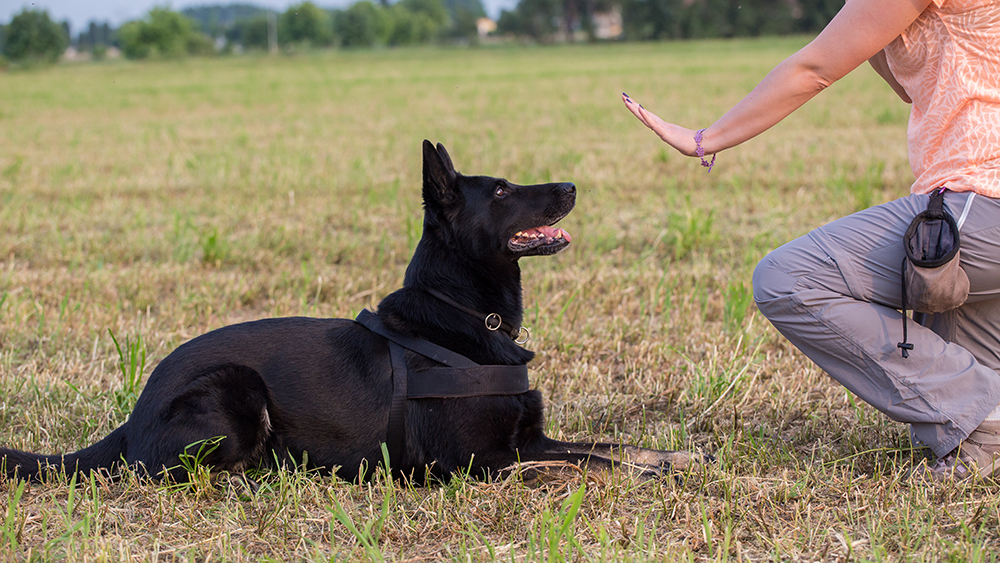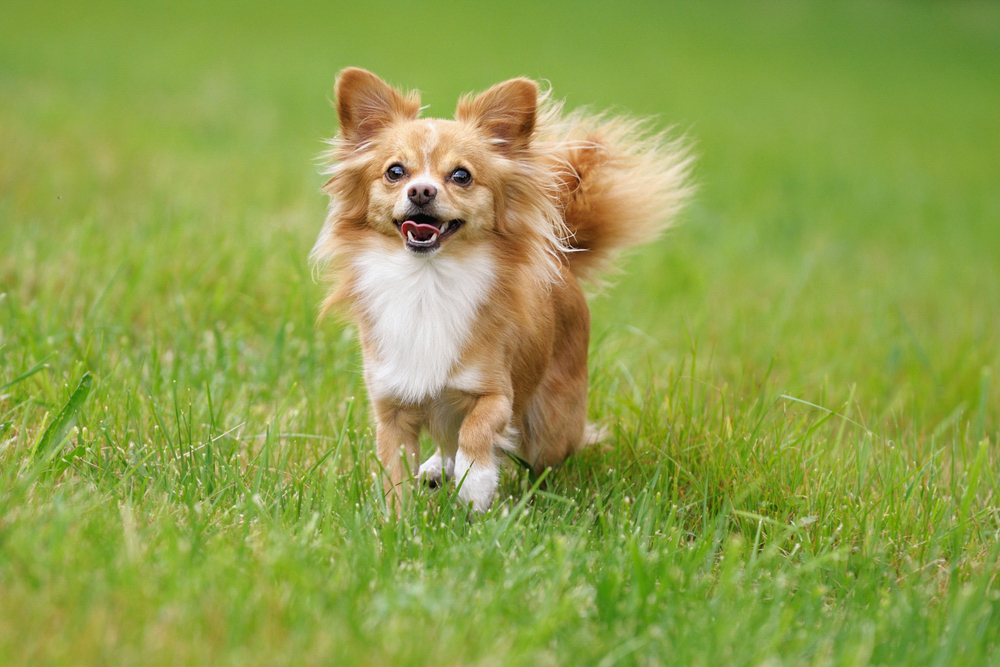Click Below to Skip Ahead
Have you ever wanted a lively, happy, and sweet dog as a pet? If yes, a Miniature Cocker Spaniel may tick all the right boxes. This playful creature is energetic and gentle and makes great partners for your kids. Miniature Cocker Spaniels also adapt easily and show interest in every activity. However, they aren’t the best watchdogs.
If you wish to welcome a Miniature Cocker Spaniel into your family but are still deciding, we are here to help. Read this guide to learn about everything about this dog breed.
Breed Overview
Height:
14 to 15 inches
Weight:
20 to 30 pounds
Lifespan:
10 to 15 years
Colors:
Brown, black, chocolate, cream, white
Suitable for:
Singles and families looking for a sweet and loving pet
Temperament:
Loyal, gentle, playful
These affectionate dogs are usually small and can be trained easily. Since they also weigh less, they are perfect for small and large families and can fit in any house.
A Miniature Cocker Spaniel is a hybrid dog and is a tiny version of English and American Cocker Spaniel. This dog, often called the Teacup Cocker Spaniel, features beautiful silky hair. Although this breed hasn’t received any recognition from the prominent kennel clubs, they exist and have distinct traits.
For instance, they are loyal and sweet to their owners. These dogs like spending time with people and can easily get bored and destructive when alone. Not only that, but they are also fun to be around and make great family dogs.
Miniature Cocker Spaniel Characteristics
Miniature Cocker Spaniel Puppies
While a Miniature Cocker Spaniel looks like a puppy itself due to its size, it is larger than life and can live up to 15 years. Finding the right breeder might be a tough issue since this dog has yet to be recognized by the American Kennel Club. It is vital that you do proper research and find other similar organizations to find a reputable breeder with a commitment to breeding happy and healthy dogs.
A puppy needs to be screened for any genetic problems and must be provided with the first vaccination before you take it home. Once the pup is under your roof, you should look after it to maintain health and activity. While a puppy may not require many nutrients daily, it may still need food twice to three times to curb hunger and development.
Similarly, a Miniature Cocker Spaniel puppy requires training and socializing to be imperative parts of their lifestyles. You can also enroll your pup in a training class if you need help teaching it the basics.
To help these puppies grow into bigger dogs, it is vital to take them for regular check-ups, maintain their exercise routine, and groom them regularly. A healthy and happy dog is a huge responsibility, so make sure that you are well-prepared to take on the challenge.
Temperament & Intelligence of the Miniature Cocker Spaniel 🧠
Since this dog is small, it is energetic and full of life. It has an athletic nature and is a treat to be with kids. They are also intelligent, so it doesn’t take long for them to understand your instructions.
Moreover, a Miniature Cocker Spaniel loves to please. This makes this dog perfect for first-time owners wishing to look after an easygoing dog. They love socializing and can be a perfect companion for hiking, walking, or running. However, the small size and low weight do limit its energy to a certain level.
Another great thing about this fantastic creature is that it doesn’t demand much. All it requires is your attention. So, when you are not around, the dog becomes bored and aggressive. In that situation, it has the tendency to become highly destructive.
Are These Dogs Good for Families?🏡
Yes, most definitely. One of the plus points of this tiny dog is its weight and size. This portable dog can be carried easily from one place to another. This means you can take it on your travel adventures, grocery trips, and even school pickups.
Also, the size of this dog makes it an excellent choice for individuals or families living in small apartments. It doesn’t need much space to settle and live with you.
However, we recommend it for larger homes and families, mostly with many pets and a few family members. Since this lovely dog likes being among people and other animals, it deserves a home where it finds attention from everywhere.
Do Miniature Cocker Spaniels Get Along with Other Pets?🐶 😽
These dogs are enthusiastic and love children and pets. Due to their playful nature, they don’t shy away or get scared of other animals. These dogs are exceptionally great with cats and love spending time with them.
However, it is crucial to understand that every dog has a unique nature and can be dominant and territorial at times. This is why training and early socialization are imperative so that all dogs and pets get along effortlessly.
When introducing your Miniature Cocker Spaniel to the rest of the pets for the first time, practice a slow and steady approach. Give them good times to get used to each other’s presence and scent and let them interact directly.
Things to Know When Owning a Miniature Cocker Spaniel
This mini dog is incredibly cute and furry. You may love it at first sight. However, before you bring it home, you should know some essential things.
Food & Diet Requirements🦴
When it comes to small dogs like the Miniature Cocker Spaniel, you should make sure to feed them great food at least three times a day. These dogs are active and can get hungry again in a short time.
Ensure you balance your pet’s food with high-quality nutrients, proteins, vitamins, and minerals. This can all come from a balanced commercial diet.
Your small dog’s health depends on balancing feeding habits and overall activity. If your dog overconsumes, they are more likely to get overweight. Therefore, strict supervision is required to prevent any health issues.
Finally, it is always a great idea to consult a vet to curate a helpful and effective feeding plan for your dog. This way, you can keep your pet’s health in check and get answers to food-related concerns from an expert.
Exercise🐕
Your Miniature Cocker Spaniel needs to stay active and energetic throughout the day. Therefore, they require some exercise to keep their body and mind healthy. In general, we recommend about 30 minutes to 1 hour of exercise daily.
Training🦮
Here is some good news. These dogs are convenient to train, courtesy of their intelligent minds. Moreover, they like pleasing their owners, making it easy for you to teach them new tricks. However, you will have to practice consistency, positive reinforcement, and patience to train them quickly.
Grooming ✂️
If you want to maintain the health and well-being of your Miniature Cocker Spaniel, consistent and regular grooming is imperative.
These dogs have long and silky hair. If you don’t brush them regularly, they will get tangled and become hard to manage. Make sure you opt for a slicker comb to keep your dog’s hair straight and smooth. You don’t have to bathe your dog every day. Take them for deep cleaning after every 6 to 8 weeks. Only use dog-specific soap, shampoo, and grooming products when washing your dog.
Trim their nails regularly, as they can also cause damage to your furniture and floor.
Your Miniature Cocker Spaniel needs strong teeth to maintain their overall health. You can use dog-specific toothpaste and toothbrush to keep your dog’s teeth shiny and healthy. You can also feed it dental chews.
Regular grooming not only helps make your dog feel healthy and clean, but it also strengthens the bond between you and your pup. Every grooming session is an excellent opportunity to build your dog’s trust and give them much-needed attention.
Health & Conditions❤️
A Miniature Cocker Spaniel is prone to certain medical conditions. If not taken care of, these health implications can get worse with time.
- Ear Infection: Common signs of an ear infection are itchiness, reddened ears, an unpleasant smell, and accumulated ear wax. Note these signs and get treatment for your dog as soon as possible.
- Skin allergies and irritation: Your dog may suffer from severe itchiness, hair loss, and redness. These are common symptoms and are often caused by environmental and food allergies.
- Eye problems: Cherry eye and dry eye are two common eye problems faced by Miniature Cocker Spaniels. Make sure you see a vet as soon as you detect these problems.
- Dental issues: Miniature Cocker Spaniels often become victims of bad breath and gum diseases. A regular dental regimen is imperative to keep your dog’s teeth healthy as they age.
- Obesity: Your Miniature Cocker Spaniel may get obese due to a poor diet and exercise routine. Before its weight gets out of control, work on its training and find different ways to keep the dog active.
- Hip Dysplasia: This genetic health condition can lead to severe pain in your pup’s joints. As a result, it may find it tough to walk correctly.
- Progressive Retinal Atrophy: This eye disease often results in blindness. Unfortunately, there is no cure for this disability. However, early detection can resolve this problem efficiently.
- Deafness: When a Miniature Cocker Spaniel’s hair is shed, some may get into its ears, resulting in hearing difficulties. Your dog may fail to hear your command, consistently rub its head, and get startled when touched.
- Mitral Valve Diseases: In this heart condition, the dog may suffer from continuous coughing and fatigue and have constant breathing issues.
- Patellar Luxation: When your dog suffers from Patellar Luxation, it dislocates its kneecap and experiences extreme pain. In most cases, only surgery is the available treatment.
Male Vs. Female
Do you want a male or female Miniature Cocker Spaniel? When it comes to their behavior and personality traits, both genders are friendly and have a loving nature. These creatures are also loyal to their owners and have loving energy.
But when you compare their appearances, male dogs have a heavy build and are large in size. Besides, they may possess an autocratic nature.
On the other hand, female Miniature Cocker Spaniels are independent. They may appear as stubborn, but their extremely friendly nature makes these dogs a favorite for families with kids. These female dogs are also much smarter than their male versions during training.
If you find your male or female Miniature Cocker Spaniel aggressive, neutering or spaying can help them calm down. Besides, these processes save these dogs from different types of cancer.
3 Little-Known Facts About the Miniature Cocker Spaniel
A Miniature Cocker Spaniel has an addictive energy and vibe that may convince you to make it your pet. It is a beautiful breed with lots of love, attention, and affection to give.
Here are three lesser-known facts about this dog:
1. These Dogs Were Initially Used for Hunting
Many years ago, Miniature Cocker Spaniels were bred for hunting. This is because their smartness, strong sense of smell, and small size made them a perfect choice to flush out any bird stuck in a thick brush. However, these dogs are ideal companions today and offer great support to young and older people.
2. You May Find Them in Many Coat Colors
The common coat colors found in Cocker Spaniels are red and brown. However, a Miniature Cocker Spaniel is available in many patterns and colors.
Most solid colors are white and black. You can also find this dog with a coat of two colors combined, such as tan and black or roan.
3. They Have Always Been Popular
These dogs have a very famous history. Miniature Cocker Spaniels gained popularity in the 20th century and since then have remained the popular breed to consider as a pet.
In fact, Cocker Spaniels have appeared in many TV shows and movies, as this beloved breed has always been easy to train and manage.
Conclusion
A loving dog can make a huge difference in your life. If you are alone and need a loyal companion, a Miniature Cocker Spaniel is a great choice. Besides, it makes a great addition to families with children.
This dog has a gentle yet loving and active nature. It is an intelligent dog with a strong sense of smell and eagerness to learn. It also demands attention, which may start getting disastrous if not given.
If you want to have a Miniature Cocker Spaniel as a pet, know that you will have to maintain its diet and active lifestyle. For that, make sure that your dog eats healthy and balanced food, attends regular grooming sessions, and participates in activities like running, walking, and hiking. Also, keep them socialized.
If your pet shows signs of deteriorating health, don’t delay. Instead, visit a vet as soon as possible and get the condition under control. Your dog will thank you for that.
Featured Image Credit: Photosite_, Shutterstock












